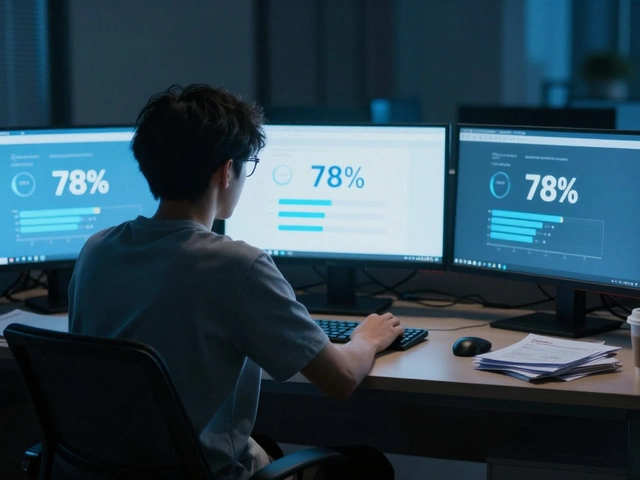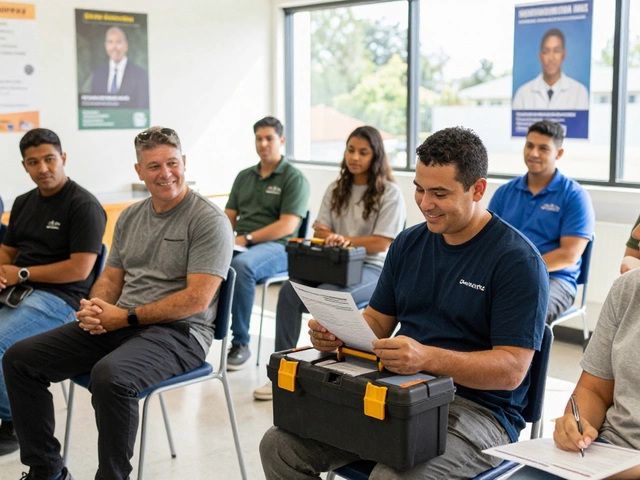Picture this: three friends, each living on a different continent, earning a college degree from the same university, without ever meeting in person. That’s the world of online learning in 2025—bigger, faster, smarter, and honestly, sometimes a little overwhelming. The choices are enough to leave anyone’s head spinning: coding bootcamps, digital marketing diplomas, nanodegrees in AI, photography masterclasses, and even courses on beekeeping management. Which one is the best online course to study? Is there really just one?
The New Wave of Online Learning
The landscape isn’t anything like it was a decade ago. It’s not just universities tossing up video lectures. Tech giants like Google and Amazon now have their own professional certificates. Platforms like Coursera, edX, and FutureLearn partner with Ivy League schools. Even YouTube is full of free, expert-led lessons—though you’ll want to dodge the sketchy ones offered by self-proclaimed "gurus."
Let’s look at the numbers. According to Class Central, the number of new online learners topped 220 million in 2024, an astonishing jump from just 40 million back in 2015. Job-related skills are in the top three searches, with tech, healthcare, and business ranked highest. Here’s a quick peek at some stats:
| Industry | Top Online Course Topics (2024) | Average Course Cost |
|---|---|---|
| Tech | Data Science, AI, Cybersecurity, Web Development | $0-$1200 |
| Business | Digital Marketing, Leadership, MBA Short Courses | $50-$2500 |
| Healthcare | Telemedicine, Public Health, Clinical Research | $0-$1000 |
| Creative | UI/UX Design, Photography, Writing | $0-$1000 |
Massive Open Online Courses (MOOCs) are now fully interactive. Forget just watching videos—think simulations, team-based projects, peer assessments, and live feedback. Some platforms offer "job guarantees." If you don’t land a job in a year after completing their courses, they return your tuition. I mean, that’s gutsy.
Now, I’ve signed up for courses on everything from Python programming to plant-based cooking over the years. My son Fletcher once asked why I never seem to finish a knitting class. (The answer: I’m terrible at knitting.) But that’s the beauty of online learning—you really can taste-test almost any topic.
Popular Courses: Who’s Winning and Why
Certain courses never go out of style because they’re aligned with how our world works (and evolves). In 2025, tech courses still rule. Python programming is the closest thing to a universal language, and data analysis skills aren’t just for statisticians anymore—they’re critical for marketers, educators, even healthcare workers.
If you check LinkedIn’s most in-demand skills list, you’ll keep spotting words like "machine learning," "data visualization," and "cloud computing." Google’s career certificates are designed so anyone—without a tech background—can be job-ready in under six months. And it works: One independent study reported that 82% of their graduates landed a new job or promotion within six months of finishing.
Healthcare courses, especially telehealth and public health foundations, surged during the pandemic and never slowed. A cousin of mine, who worked as a dental assistant, switched to a public health administration role thanks to an online certification from Johns Hopkins. She never looked back.
Business leadership courses also get snatched up like concert tickets, especially those with real-world projects—think Harvard Business School Online or Wharton’s strategic management series. Remote work drove demand for digital marketing and project management courses. Can you imagine leading a global marketing campaign from your kitchen table?
Creative fields are holding their own. UI/UX design, digital photography, and creative writing saw double-digit growth in 2024. Portfolio-based courses win here, because that’s what employers want to see. If you’re the next Annie Leibovitz or want to be, now’s your window.

Factors to Pick the Best Course For You
So, what makes a course “the best”? It’s not the fancy university name or a viral TikTok testimonial—it’s how well the course fits your life and your goals. Start by asking: why am I taking this? Is it to pivot careers, level up at my job, or just out of curiosity?
For career moves, check for industry-accredited programs or ones that offer professional certificates. Want global recognition? Look for names like Coursera, edX, or LinkedIn Learning. Need direct job results? Google, IBM, and Microsoft now offer short, job-specific certifications—super practical if time is tight.
Then, set a budget. Some of the best courses are free (MIT’s OpenCourseWare, for example). But if you need instructor support or a credential, expect to pay. Microcredentials or nanodegrees, like those from Udacity or FutureLearn, usually range from $300 to $1200. Don’t shell out for a program unless you clearly know what you want that certificate to do for you—a diploma on the wall means nothing if you don’t use it.
Consider learning style. Find courses that fit your rhythm. Are you the type who likes interactive assignments and group work, or do you just want to binge-watch lectures at 2 AM while eating cookies? Some people need set class times for focus (hello, accountability), while others need flexibility. I learned this the hard way with Fletcher’s remote art class. He thrived with live classes, flopped with pure self-paced videos.
Check support features. Active forums, peer mentoring, and live chat help make finishing much more likely. A 2023 MIT study found students were 35% more likely to finish if their course included live Q&A or peer feedback sessions. Little things like these keep you going when the couch and a movie look so much more tempting.
Future-Proof Skills and Courses Worth the Hype
Alright, let’s talk future skills. Some things—like creative problem solving and digital literacy—aren’t going anywhere. Employers want people who can adapt, think critically, and keep learning new tools.
Fields exploding right now: artificial intelligence, cybersecurity, healthcare analytics, sustainable business, and remote project management. For example, the number of cybersecurity job listings in the US was up 30% from 2023, and the gap for skilled AI engineers keeps widening worldwide.
Here’s what’s earning top student reviews and employer attention in 2025:
- Google IT Support or Data Analytics Certificates: Quick, affordable, stackable. Leads to real interviews.
- Coursera Professional Certificates in AI, Data Science, Marketing: Run with big-name universities and tech leaders. Real projects included.
- Udemy Specialized Bootcamps: These nail the practical skills—everything from web design to video editing to ethical hacking.
- MicroMasters from edX: Targeted, recognized, a stepping stone to full degrees for those with ambition and time.
- Khan Academy and MIT OCW: Best for evergreen skills and strong grounding—zero cost if your budget is slim.
A tip I share with friends (and Leo, whenever he’s considering a new certificate): read student forums and reviews, not just official hype. Honest users can spot bad teaching or outdated content before you throw money at a fancy-sounding provider. Another favorite hack: check LinkedIn profiles of people in jobs you want, then look for patterns in the certifications they have.

Getting the Most Out of Your Online Course
Signing up is one thing; finishing and applying it is another beast. The dirty secret? About 50-60% of online students never finish their course. Distractions mount, enthusiasm fades. So, here’s how to stick it out and make every hour count.
First, block out regular study slots. Doesn’t need to be daily, but routine helps. I keep my laptop set up in the kitchen—close enough for coffee refills, but far enough from the TV. Tell family when you’re "in class"—in my house, that’s code for "let me be."
Second, set micro-goals. Instead of aiming to "finish the course," decide to complete one lecture, quiz, or assignment per day. A lot of platforms offer streak rewards or badges—those little dopamine hits add up.
Third, get social. Join the course forum or Slack channel. Answer someone’s question or share a resource. You’re way more likely to finish if you’ve got even a virtual study buddy.
Fourth, apply what you learn immediately. Build a tiny project, draft a blog post, update your resume, or mention a concept at work. Action cements knowledge way more than just watching or reading.
If you hit the motivational wall, revisit your “why.” Leo once said he nearly quit his coding bootcamp, but a friend reminded him he wanted flexible work to spend more time with Fletcher. That snapped him right back. Motivation is slippery, but reminders work wonders.
Finally, don’t fear quitting duds. Not every course is well-made or fits your learning. If you’re getting nothing from it, pause or refund if you can, then try another. The big bonus of online learning is endless choices. Don’t settle for boring or bad just because you started it.





